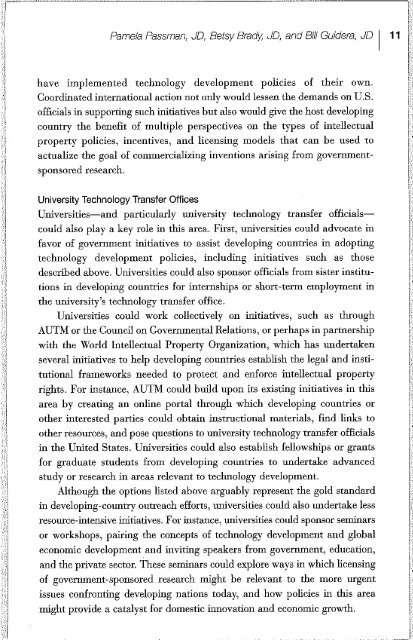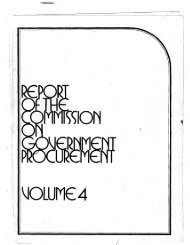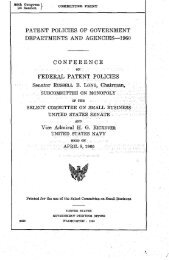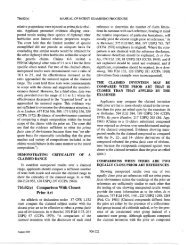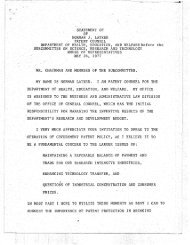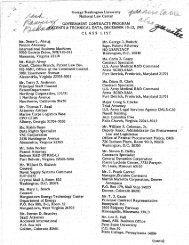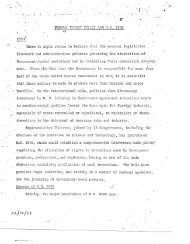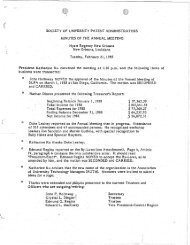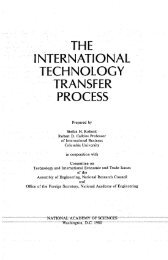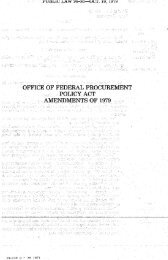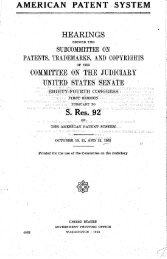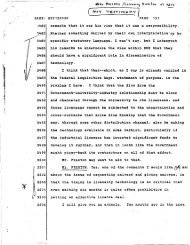~Iri,n - Bayhdolecentral
~Iri,n - Bayhdolecentral
~Iri,n - Bayhdolecentral
You also want an ePaper? Increase the reach of your titles
YUMPU automatically turns print PDFs into web optimized ePapers that Google loves.
Pamela Passman, JO, BetsyBrady, JO, and Bill Guidera, JO I 11<br />
have implemented technology development policies of their own.<br />
Coordinated international action not only would lessen the demands on U.S.<br />
officials in supporting such initiatives but also would give the host developing<br />
country the benefit of multiple perspectives on the types of intellectual<br />
property policies, incentives, and licensing models that can be used to<br />
actualize the goal of commercializing inventions arising from government<br />
sponsored research.<br />
University Technology Transfer Offices<br />
Universities-and particularly university technology transfer officials<br />
could also playa key role in this area. First, universities could advocate in<br />
favor of government initiatives to assist developing countries in adopting<br />
technology development policies, including initiatives such as those<br />
described above. Universities could also sponsor officials from sister institu<br />
tions in developing countries for internships or short-term employment in<br />
the university's technology transfer office.<br />
Universities could work collectively on initiatives, such as through<br />
AUTM or the Council on Governmental Relations, or perhaps in partnership<br />
with the World Intellectual Property Organization, which has undertaken<br />
several initiatives to help developing countries establish the legal and insti<br />
tutional frameworks needed to protect and enforce intellectual property<br />
rights. For instance, AUTM could build upon its existing initiatives in this<br />
area by creating an online portal through which developing countries or<br />
other interested parties could obtain instructional materials, find links to<br />
other resources, and pose questions to university technology transfer officials<br />
in the United States. Universities could also establish fellowships or grants<br />
for graduate students from developing countries to undertake advanced<br />
study or research in areas relevant to technology development.<br />
Although the options listed above arguably represent the gold standard<br />
in developing-country outreach efforts, universities could also undertake less<br />
resource-intensive initiatives. For instance, universities could sponsor seminars<br />
or workshops, pairing the concepts of technology development and global<br />
economic development and inviting speakers from government, education,<br />
and the private sector. These seminars could explore ways in which licensing<br />
of government-sponsored research might be relevant to the more urgent<br />
issues confronting developing nations today, and how policies in this area<br />
might provide a catalyst for domestic innovation and economic growth.


